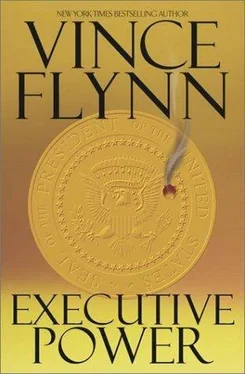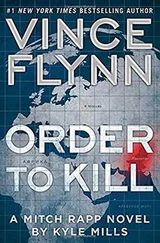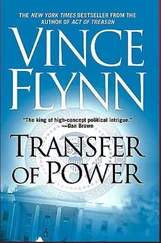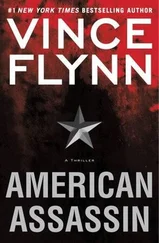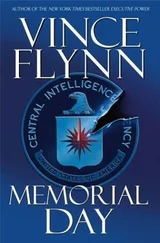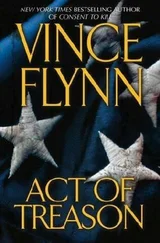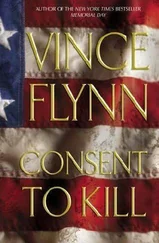David was met by a youthful priest from Italy and escorted to the second-floor office of Monsignor Terrence Lavin. The short and portly Monsignor tore his spectacles from his face and stood to greet his handsome guest.
"Jabril, how are you, my son?"
David clasped the Monsignor pale fleshy hand.
"I am well, Terence, and you?"
Looking up with his sparkling blue eyes, the older man said, "I would be better if we were having some fine French cuisine downstairs, but I have been told I am not allowed to ply you with food and wine today." The priest looked quickly at the closed door behind him and made a face.
Raising a conspiratorial eyebrow, David shrugged and said, "I would very much like that, but I'm afraid our mutual friend is calling the shots." David enjoyed Monsignor Lavin very much. A true Renaissance man, as they liked to say in the Church, he held advanced degrees in law, finance, theology and philosophy and was a connoisseur of fine wine, good food and classical music. David had met him many years ago through his parents and had often looked to the worldly priest to help expand his mind.
"Well," commented Lavin, "we will have to reschedule when you have some time." The priest grabbed a file from his desk and said, "The business that we supposedly discussed today." He handed it to David.
"I've prepared a report of your holdings with us and how they've performed over the last month. The standard stuff. Take a look at it before you leave, in case your friends decide today is the day they feel like being educated. "With that Lavin led his visitor to a dark-stained, heavy wood door behind his desk and opened it.
David thanked him and stepped into the shadowy windowless room. The Vatican took their security as seriously as any great nation.
They had secrets that needed to be kept, relationships that needed to be cloaked and enemies that were none too fond of them. David had come to this room many times. Located on the interior of the second floor, its four walls were covered with massive old tapestries that he guessed hid counter-bugging devices. Like much of Jerusalem it smelled old. On this day, as on many others, the stale odor made him think of death.
An old wisp of a man sat silently at the far end of the table. A yellowed lamp in the corner cast a faint glow. The man's name was Abe Spielman. David had known him now for twenty-two years. Father Lavin had introduced them to each other, and David had never bothered to ask if that introduction was of the priest's own volition or if Spielman had pushed for it. Lavin had always acted as if it were his idea, but now that he was older and a bit wiser, David would have to guess that it was Spielman who had wanted to meet him. It would be very much in character with the old man. He was infinitely patient and had a knack for judging both people and situations far in advance of others.
Abe Spielman was a spy. At eighty-one he'd slowed down quite a bit, and if people took that to mean he was less than sharp that was fine with him. He had spent an entire career trying to get his adversaries to underestimate him, and to a great extent he'd succeeded.
You wouldn't know it by looking at this gentle grandfatherly figure, but there had been a time when Abe Spielman had been a warrior of the finest order, both for Britain in World War II and then again during his country's fight for independence in 1948. His bravery throughout those heady days was legendary.
It was after the War of Independence that Spielman retreated into the shadows and went to work for his new country's intelligence service.
He went on to become one of Mossad's most highly decorated operatives, but only a few people actually knew of his exploits and most of them were dead or near death.
Abe Spielman was a scholar. A writer of books and a professor of theology and history, who just so happened to moonlight as a spy. Or vice versa. He gazed down the length of the heavy wood table. The sight of the young man before him, so full of vigor and youth, reminded him of just how old he was.
"Excuse me for not getting up to greet you, Jabril. "The voice was raspy and slightly unsteady.
"Don't be silly, Abe," laughed David.
"You don't need to get up for me." He crossed around the room and extended a warm hand.
Spielman took it weakly in his own and said, "Please sit. Tell me how you've been, my friend."
"I've been fine." David dropped gracefully into the chair on Spiel-man's left.
"And you?"
"Fine." He clasped his hands and added, "My graduate assistants do most of my work now so I can focus on my writing."
"Is that good or bad?"
Spielman frowned.
"A bit of both, I suppose. I miss the kids mostly.
Their youthful exuberance."
"But you don't miss the politics of the university?" David knew that his old friend felt very strongly about the takeover of Hebrew University by the ultra-orthodox rabbis of his religion.
"They will be the end of us all. You know it as well as I. The zealots of Judaism and the zealots of Islam will drive us all right into the abyss."
David nodded knowingly. They had discussed it for years. After a long reflective moment he said, "If there were more people like us, peace wouldn't be such a problem."
"Problem." Spielman wryly noted the use of the word in relation to peace. There was a time not so long ago when he thought he would see peace between the two peoples of Palestine, but now he felt that elusive prize slipping over the horizon. He'd dreamt of an armistice between Arabs and Jews for many years. He knew that for his tiny nation to survive long-term they would need to forge a real and lasting friendship with their neighbors. In recent years, though, that had all slipped away.
"I do not think I will see peace in my lifetime."
David noted that there was genuine sadness in the old man's eyes when he spoke. In an encouraging voice he said, "It might not be as far off as you think, Abe."
Spielman shook his head.
"No. There is no hope. Things are worse today than they have ever been short of the War of Independence.
When teenage girls begin strapping bombs to themselves and blowing themselves up in public, we have reached a level of despair and hatred that the world has rarely seen."
"Not even with the Nazis?" asked David a bit skeptically.
"The Nazis were bullies; inhumane coldhearted butchers. They detested us, but in their minds we were beneath them." The professor paused for a moment and then added, "These martyrs that we are facing today hate us with every ounce of their being. But they also think that we are the villains, the cause of all their problems."
He added sadly, "I warned my people years ago that these camps would someday be our undoing. Everyone ignored me, though. Apparently there were better things to spend our money on." Spielman frowned at the shortsightedness of politicians.
"When you take away all hope, when you treat people as if they are no better than animals, undeserving of respect and compassion, do not be surprised one day when the whole lot of them rise up and shake off their bonds. It is the story of my own people being led from Egypt by Moses."
"Except the Palestinians," added David, "are already home."
"Exactly. They are not going anywhere. They want us to leave. For the first time they have seen hope in these so-called martyrs. They dance in the street when innocent Jewish women and children are killed."
"Are not innocent Palestinian women and children killed by your tanks and your missiles?" David parried.
Spielman eyed the younger man like a stern father.
"You do not see Jews dancing in the street when a Palestinian baby is borne from the rubble."
David nodded. It was an ugly reality that his people not only rationalized the murder of civilians, but celebrated each death as if it were a glorious event.
Читать дальше
